For the closing event of Reprodutopia, a true meeting of minds took place as we discussed the social implications surrounding the future of reproductive technologies. Multiple perspectives were heard in a talk-show style debate. Philosophers, bioethicists, researchers, a midwife, a new mother and audience members gathered to discuss the future of babymaking.
The event followed up on a number of questions raised in the exhibition; should men be able to give birth to children? Should we externalize pregnancy with artificial wombs? And are these feminist dreams or Frankenstein nightmares? The event also provided an opportunity for researchers at Athena Institute to publicly share their findings from the exhibition, and discuss the impact of speculative design as a form of science communication.
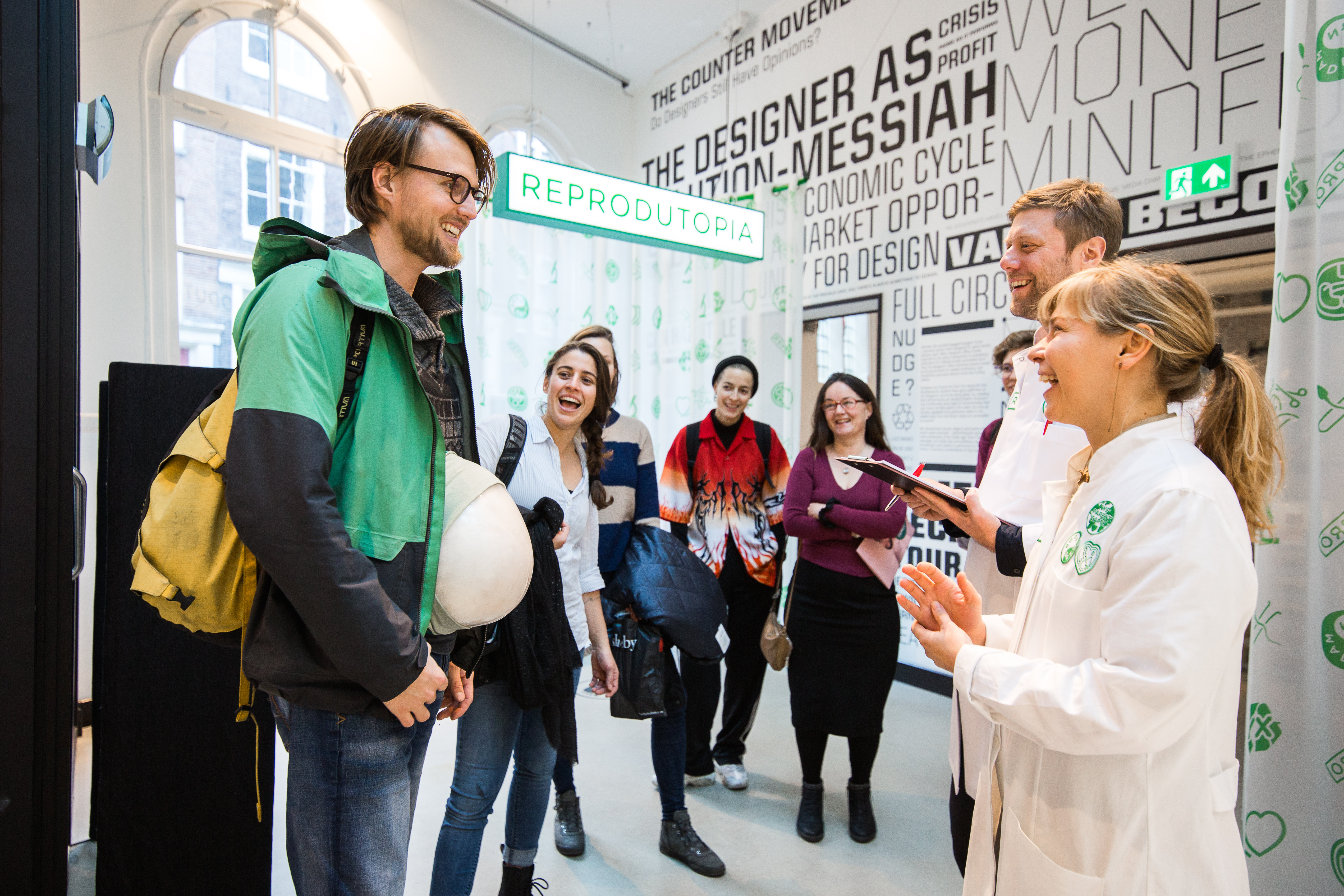
Motherhood, femininity and biology
First up, we addressed the question of whether biology should remain linked to femininity and the female body. Are there aspects of motherhood that technology cannot replicate? Philosopher Anna Smajdor and midwife Beatrijs Smulders shared their perspectives.
Smajdor asked, is pregnancy overvalued in our society, and why are negative experiences of birth ignored? She got us thinking, what possibilities emerge when we remove the female body from reproduction, and when society adopts a new idea of femininity, womanhood and pregnancy? Would care-giving roles be given a higher status in our society? Would women experience true equality when reproductive responsibility is shared between men and women through the use of an artificial womb, for example?
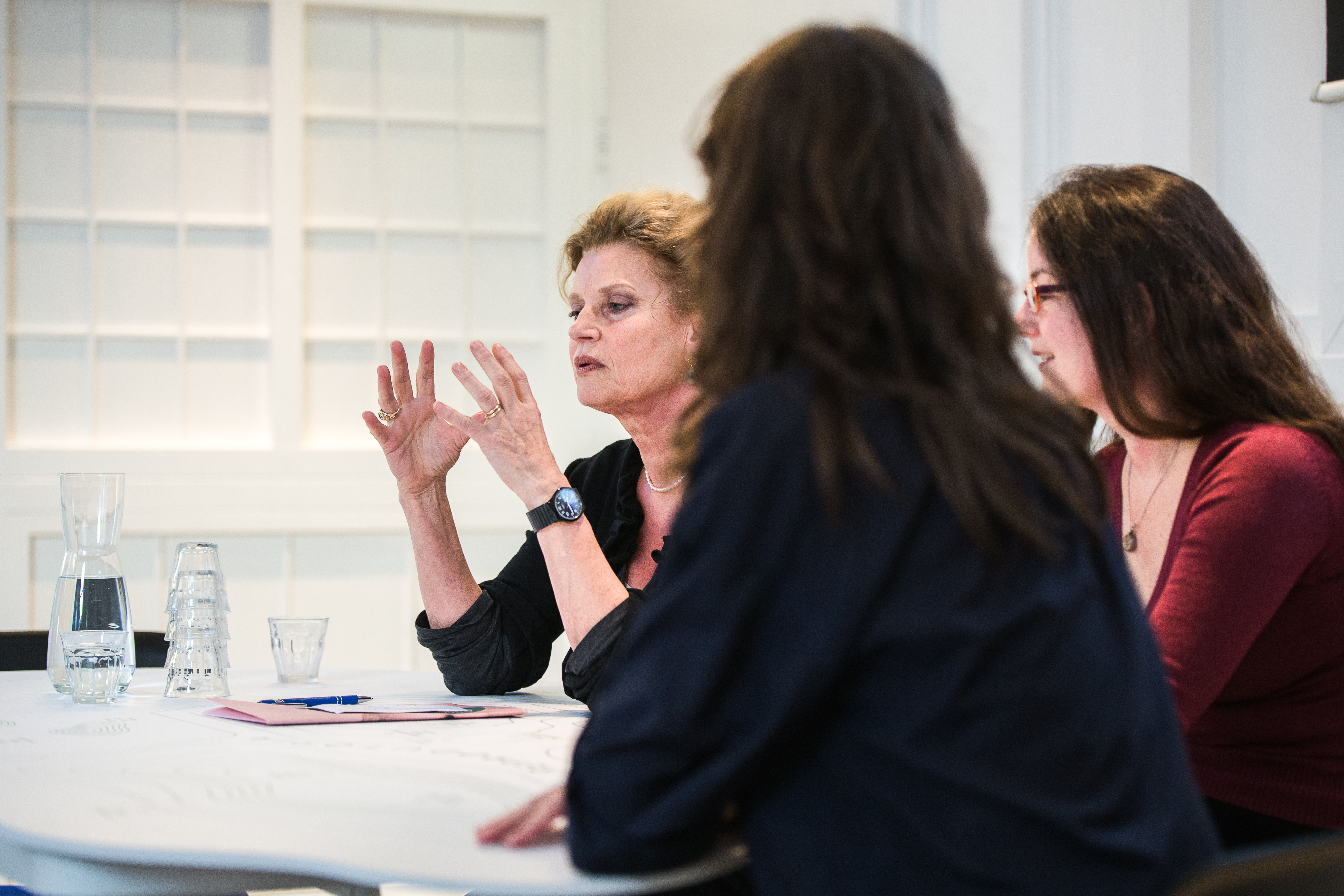
Midwife Beatrijs Smulders, on the other hand, celebrated the reproductive capabilities of women, and argued that technology cannot replicate the essential care and bonding stages of a pregnancy. She views the natural processes of pregnancy and breastfeeding as a crucial stage of development that allows children to have healthy, loving relationships in the future. She argued for technology that aids women's reproductive capabilities rather than recreating them, and applauded technologies such as IVF and developments in antibiotics in terms of making birth safer for more women. She disagreed with the idea that women should give up their natural ability to deliver babies, or that they should shape their reproductive role to fit around potentially male driven technologies.
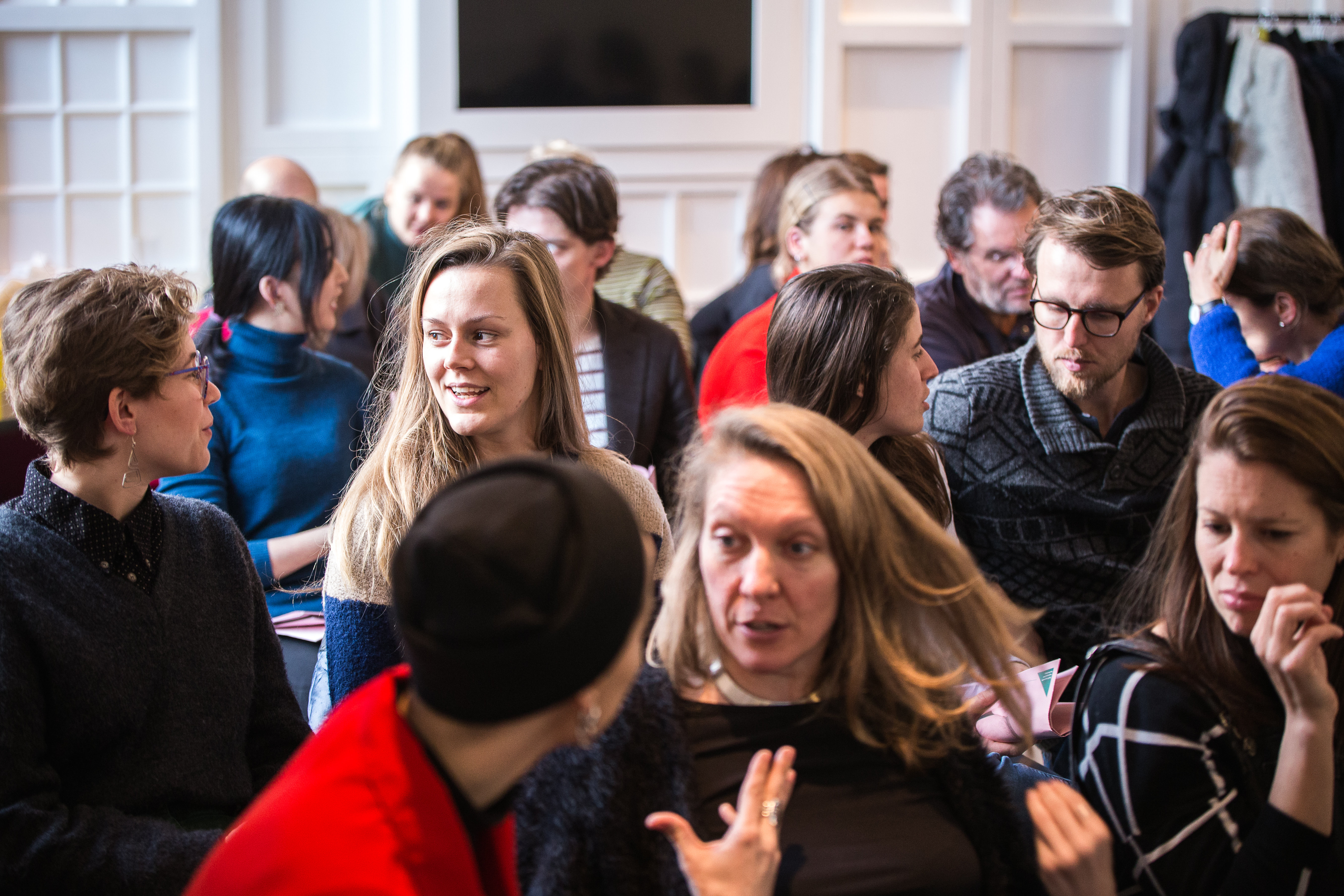
Some audience members shared these assertions, claiming that human intimacy cannot be replicated by technology, and that we should not underestimate the psychological development of both mother and child in the process of natural births and pregnancies. Others disagreed on the weight of responsibility placed on mothers, arguing that a community brings up a child, and that we should loosen parenting’s biological ties.
Meanwhile, our live Instagram poll revealed polarized opinions about the experience of pregnancy:
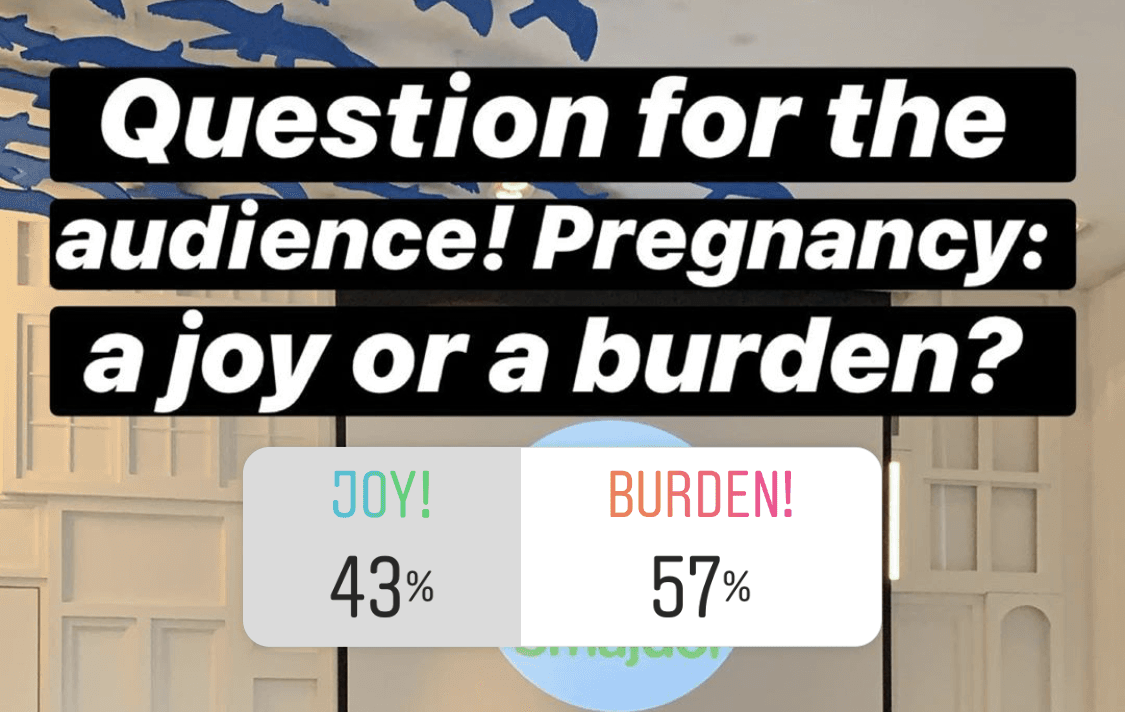
Future society, imagined
The next part of the talk-show explored how society might be transformed by the widespread use of new reproductive technologies. Two readings of speculative fiction presented the audience with alternative future scenarios to help them navigate some of the societal complexities of Reprodutopia. These world-building scenarios formed a solid ground from which we could go beyond the technologies presented and think about the bigger picture.
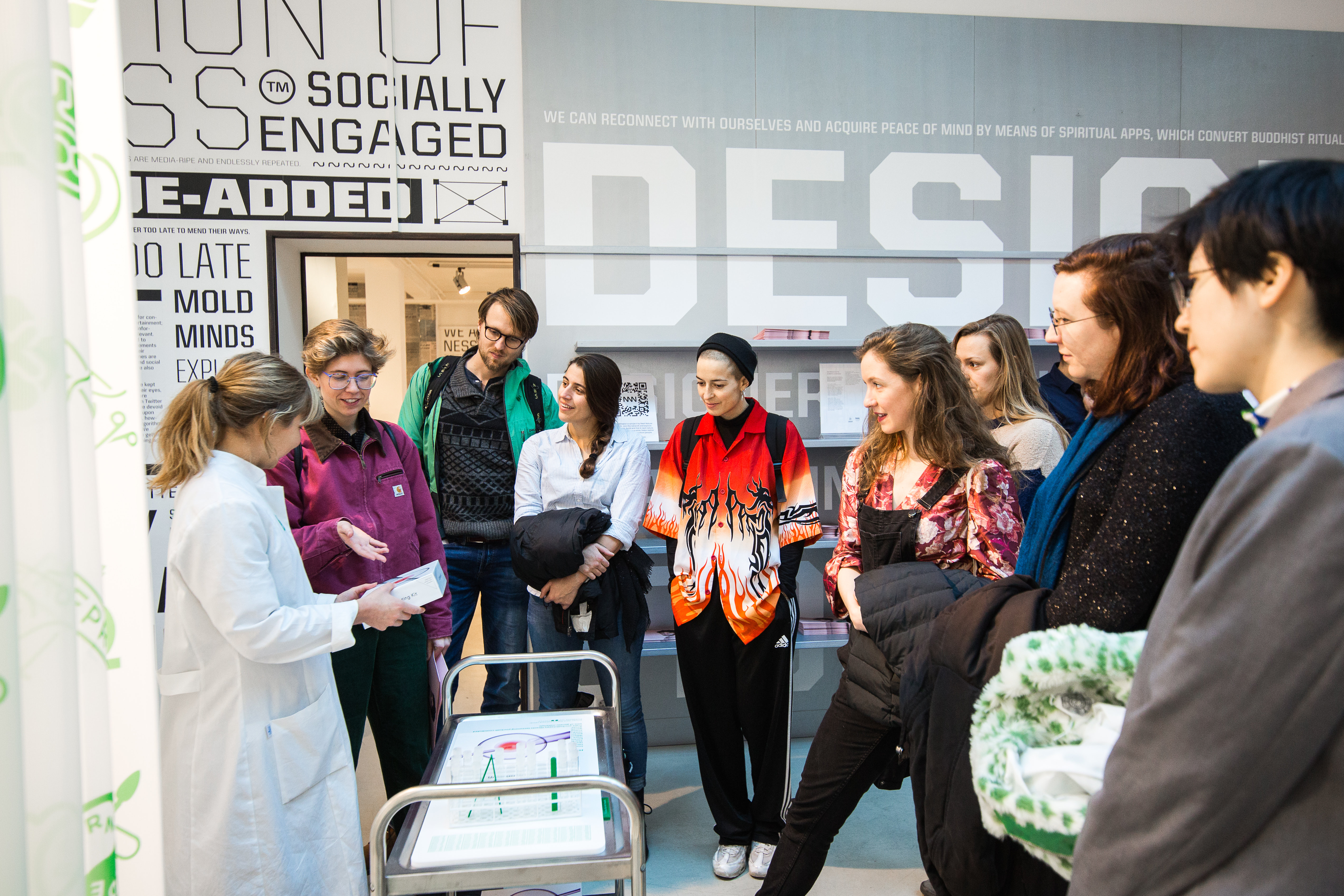
Bioethicist Marcel Zuijderland read extracts from a personal diary which revealed the experiences of a gay couple making preperations for their child in 2084. His fictional diary communicated the joy experienced by same sex partners when finally given the technology to have their own biological child, whilst also predicting societal divides between natural and technologically enhanced children.
Next, philosopher Marjintje Smits’ reading imagined the implications of future technologies from a feminine perspective. She forecasted that although future technologies may make birth safer and less disruptive to a woman's life, technological intervention could also mean the unwanted medicalization, control and ownership of women’s bodies.
Both diary entries identified the benefits of technology in terms of creating inclusive, safer, and less labour intensive births. However, tension was predicted between different sections of society; as expected, and the audience concluded, there is not one fix for all.
Divided opinion continued online:

Towards collective standpoints
The final part of the event sought to establish humane standpoints for living in a world where there are no boundaries for reproductive technologies, where they have become the norm; in other words, Reprodutopia.
Panelist Hafez Ismaili M’hamdi, a medical ethicist who focuses on social equity and reproduction through the lens of health, thinks self-determination is key. We have the potential to grow in a society that allows us to carry out our inner motivations, motivations that should also involve connecting and having close, affectionate relationships with others and forming social groups. There was an agreement that we have a certain right to live in the ways we wish, but should there be limitations?
Having experienced first-hand the difficulties of bonding with her premature baby, new mother Nanon Labrie warned of the psychological impact reproductive technologies external from the womb may have. Whilst she empathized with the convenience of artificial wombs and the division of responsibility between men and women, she asked for a Reprodutopia in which the mental as well as physical well being of child and chosen parent are a priority.
Others pushed the importance of social equality and democracy when it comes to creating guidelines for Reprodutopia. One audience member argued for a Queertopia, where reproductive technologies promote more inclusive societies not confined to biologically determined roles. This led us to contemplate, how can technology translate to complex societal needs? The variety of reproductive technologies shown at the exhibition address a range of specific issues, and a solution for one individual or group may not be the same for another.
Nobody has concrete answers, but it is crucial to have these discussions and ensure developments in reproductive technologies address multiple perspectives and needs. Reproductive technologies, and even future speculations, draw form the political and social climate in which they are made; we must think collectively about which values we would like to shape them.
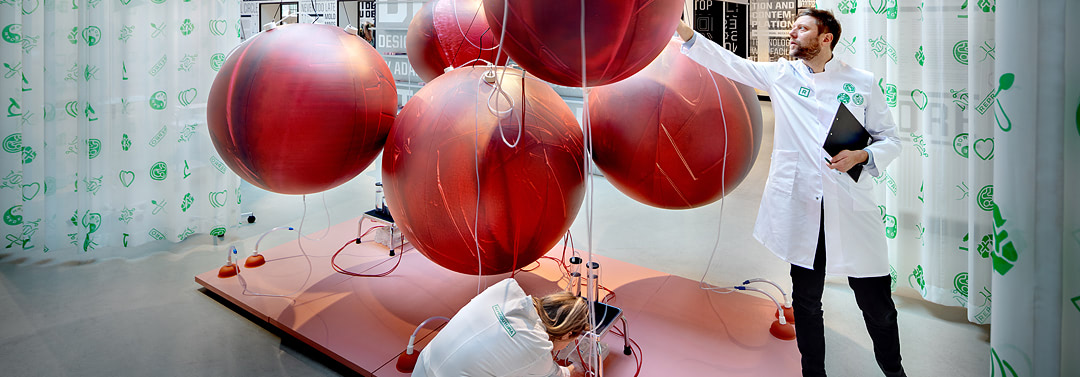
Share your thoughts and join the technology debate!
Be the first to comment